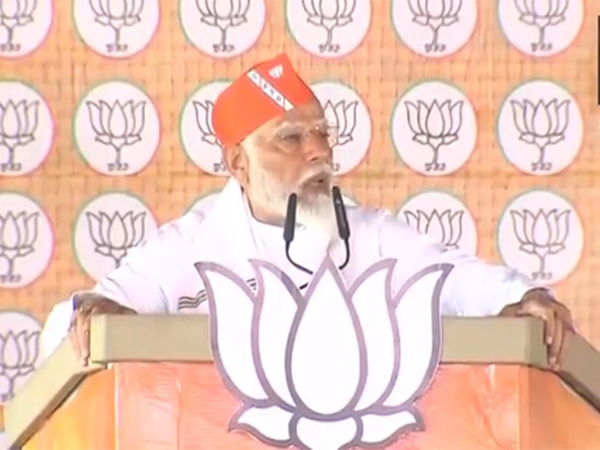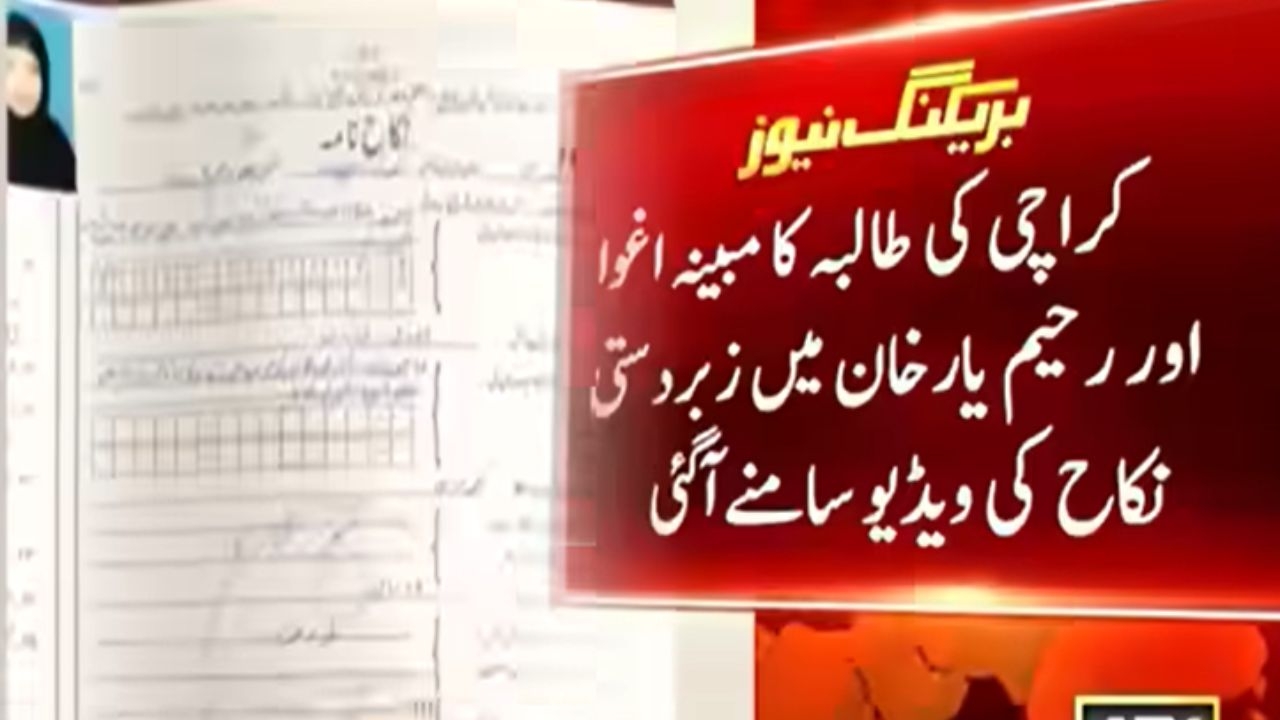Land, Ram Temple & 9 other ways RSS outfits are upset with Modi

The story
- Some RSS outfits are upset with \'Modi-nomics\': they say people who voted on election promises feel \'deceived\'.
- They have been asked to mute their opposition, but the cracks are deep.
Key issues, three outfits
- For farmer union Bharatiya Kisan Sangh the issues are: land acquisition ordinance, absence of consent, cut back on bonuses to farmers.
- For labour union Bharatiya Mazdoor Sangh: labour reforms, disinvestment in coal, FDI in insurance, railways and retail - and Modi\'s big idea, \'Make in India\'.
- The Swadeshi Jagran Manch\'s the core concerns are: GM seeds and trials, e-commerce companies, patents and trade with China.
Dissenting quotes
- BMS accuses government of a \'criminal neglect of the social sector\'.
- BKS says Modi\'s silence is akin to someone bitten by a snake, but we know \'the antidote for snakebites\'.
- BMS also says the corridors of power are filled with \'US-based NRI advisers\' loyal to the corporate sector.
- The SJM expresses \'shock, disbelief and anguish\' on GM trials. It also urges Modi not to succumb to \'continuous pressure of the western world\' on patents and IPR.
On 21 June, the Rashtriya Swayamsevak Sangh (RSS) - the BJP's parent body - clearly did not abide by the government's single-point obsession with the first International Yoga Day.
While Prime Minister Narendra Modi led the yoga extravaganza in Delhi, the RSS held a meeting of its senior functionaries in Varanasi.
At this Kashi Pranth meeting, RSS supremo Mohan Bhagwat reportedly told a gathering of cadres as well as senior leaders of the BJP and Bajrang Dal that the government needs to take a hard look at its first year in office.
Bhagwat apparently also lent vocal support to the cadres' demand for building the Ram Temple in Ayodhya.
Mail Today reported him as saying, "I am not ready to face the wrath of the people as they had voted for the BJP in the 2014 Lok Sabha elections with the hope that a temple would be constructed in Ayodhya during its rule."
If this is accurate, it would lay bare a major fissure lying below the radar between the RSS and Modi.
While the Ram temple is a core agenda for both the RSS and BJP, as prime minister, Modi can ill-afford any visible escalation of communal tension. This would damage his global image badly. The temple issue has also out-lived its electoral sell-by date. Bringing it into the foreground now could boomerang for the BJP.
To build or not to build
Sources in the RSS say Bhagwat's position on this has been misrepresented.
"There is no doubt we want the Ram temple," said the source. "We also want it resolved within the 60 months asked for by Modi. But Bhagwat 's real position is that no initiative will be taken until the Supreme Court gives its verdict. If the verdict is not in favour, then the Sangh outfits will jointly consider the steps to be taken."
Prakash Sharma, BJP mahasampark and party vice-president in the state, also told Catch, "The BJP is serious about the temple and has promised to clear a path for it, but we can't fix a deadline for it." These statements point to the many contradictions Modi has to straddle.
In the first year of his tenure, the 'ghar wapsi' programmes and blatant communal remarks by some members of the Sangh Parivar have earned him a lot of criticism, forcing him to walk a tightrope.
After coming to power, he has publicly sworn allegiance to the plural values of the Constitution. He has also launched on a visible outreach to Muslims - both to assuage foreign policy needs and domestic perception.
But, at the same time, he has also rewarded several communal hotheads with tickets and ministerial berths.
If the RSS were really to foreground the Ram temple issue, things might just get hotter for him to handle.
Economy - hotter than the Ram temple?
Interestingly, however, even more than the RSS' controversial reconversion programmes or utterances on the Ram temple, what may really sour the relationship between Modi and the Sangh Parivar, is the government's economic policies.
When Modi announced his first ordinance on land acquisition last year - doing away with the consent clause from farmers, among other things - several wings of the RSS erupted in protest.
At its annual summit in Nagpur in March this year, Mohan Bhagwat asked the cadres not to challenge the Modi government and focus on consolidating the RSS' 'social agenda' instead. This diktat may have curtailed the internal opposition, but it can't hide the cracks beneath the carpet.
On 22 June, a day after Yoga day, three RSS wings again put up a vehement opposition to the government's proposed amendments to the Land Acquisition Act. They were deposing before the Joint Parliamentary Committee that is currently examining the Bill.
If it is true that Bhagwat asked the cadres to keep a sharper eye on the government at the meeting in Varanasi, the fault lines could flare up very quickly again.
While the farmers' union Bharatiya Kisan Sangh's (BKS) opposition to the Land Acquisition Ordinance has been widely publicised, there are at least 10 other issues on which both the BKS and other RSS-outfits have big differences with the government.
Here's the lowdown on them:
The BKS is upset not just with the removal of the consent clause and need for social impact assessment while acquiring land, it feels let down by the Modi government's approach to land acquisition in several ways.
Its National General Secretary Prabhakar Kelkar says the very concept of acquisition of land is objectionable. Cultivable land, Kelkar says, is the farmer's principal source of livelihood and must not be taken away for constructing buildings, irrespective of the use they are put to or the public interest they will serve.
He asks, "Why can't schools, hospitals and factories be constructed on five lakh square kilometres of barren land in the country?"
His view that the government should not be in the business of acquiring land for private players echoes that of Lok Sabha Speaker Sumitra Mahajan.
Ironically, Mahajan, a BJP leader, had made the same argument in her report on the Land Acquisition Bill of 2011. She was the Chairperson of the Parliamentary Committee that examined the Bill.
It would seem the party and its ideological parent were on the same page when the party was in Opposition but now things have changed.
The BKS had organised a rally in December 2014 in Bhopal to protest against the Central government's order to state governments to stop paying bonus (over and above the minimum support price) to farmers for grain procured from them.
Kelkar had slammed the prime minister personally at the rally, saying that in spite of being in power for seven months, not only had Modi "not increased the minimum support price, he has asked state governments to stop giving bonus."
Also attacking Modi for his silence on the issue, Kelkar said, "Modi aise maun hai jaise koi sanp sungh gaya ho. Lekin hame sanp ka zahar nikalna aata hai ( Modi's silence is akin to that of someone bitten by a snake. But we know the antidote for snake bites)."
This frontal attack was launched in the presence of MP Chief Minister Shivraj Singh Chouhan.
The centrepiece of Modi's economic reforms has come in for particular criticism from the BKS as well as the Sangh-affiliated trade union organisation, Bharatiya Mazdoor Sangh (BMS).
While Kelkar of BKS alleges that under the guise of 'Make in India', the government wants to take away land from the farmers and hand it over to foreign enterprises, the BMS has gone a step further.
Its national general secretary K C Mishra startled policy-watchers some months ago by claiming that "'Make in India' is nothing but a continuation of UPA's economic policies".
The BMS has been quick to label the government raising the FDI limit in Defence, Insurance and the Railways in August last year as an unfortunate development.
[twittable]'The govt thinks FDI is the panacea for all the financial crises,' says the Bharatiya Mazdoor Sangh[/twittable]
BMS General Secretary Brijesh Upadhyaya told reporters that they are against FDI in totality because "the idea of FDI has not been thought through properly and the government thinks that FDI is the panacea for the financial crisis in the country".
For the record, the BJP manifesto says that the party will allow FDI wherever needed, barring in multi-brand retail.
A few months ago, nearly five lakh coal mine workers across the country had gone on a two-day strike protesting against attempts at "disinvestment in Coal India and de-nationalisation of coal mining".
The BMS joined four other major trade unions that steered this strike. The BMS has also criticised the government's failure to protect thousands of contractual coal workers and their families who have been affected by the cancellation of over 200 coal blocks.
In its letter to the Prime Minister, the organisation had alleged that handing over the nation's natural resources to the private sector was writ large in the coal law as well as the land acquisition law.
In the same letter, the BMS goes on to make serious charges against the government on the economic front, especially with regard to labour reforms.
It accuses the government of "favouring the corporate sector and indulging in criminal neglect of the social sector".
It also described the recent changes in labour laws as against the nation's interests. In a resolution passed at its national executive meeting in Bhopal, the BMS said it was for the "first time in the labour history of independent India that a chain of important and basic changes were being brought in labour laws without consulting the trade unions".
It attacked the Rajasthan government's amendments in labour laws as well, calling them arbitrary, and accused the Centre of taking them as a model and circulating them among all state governments.
Giving specific examples, the BMS claimed that under the Small Factories Act, "factories with up to 40 people are being exempted from ESI, PF and other labour law clauses, which means 71.2% of factories and 80% of workers will be out of coverage of labour laws."
Even though Finance Minister Arun Jaitley has appealed to the Congress in the past few months not to "create an environment in this country where infrastructure and industry become bad words", the allegations of giving precedence to corporate interests over national interest is a central theme in the entire body of BMS and BKS's criticisms against the NDA government.
In its letter to the PM, the BMS notes that the "corridors of power are filled with US-based NRI advisors and ministers who are loyal to the corporate sector".
Its national executive resolution slams the entire range of economic initiatives the government has taken so far, saying, "The electricity bill, road transport and safety bill, insurance law amendment, banking reforms, railway reforms and the Meena Kumari report on fishing sector are all meant to hand over national wealth to the corporate sector."
The Swadeshi Jagran Manch, another offshoot of the RSS that campaigns for economic self-reliance, recently expressed 'shock, disbelief and anguish' at the government's clearance of field trials for 15 Genetically Modified crops.
In a press release, its All India co-convener Ashwani Mahajan said that those who had 'voted BJP to power on the promises the party made to the people of India' were now feeling 'deceived'.
Mahajan reminded the government of its manifesto promise that "GM foods will not be allowed without full scientific evaluation of their long-term effects on soil, production and biological impact on consumers."
One of his arguments establishes a parallel with the Land Ordinance controversy, in terms of how the BJP has shifted its stand on critical issues from when it was in Opposition to when it is in power.
[twittable]RSS outfit says those who 'voted BJP to power on election promises are now feeling deceived'[/twittable]
Mahajan points out that a report of the Parliamentary Standing Committee on Agriculture from August 2012, which included members of the present regime, had also asked for a ban on GM crops.
The SJM has also been campaigning for a ban on e-commerce companies in India because it feels that "multinational companies are coming through the backdoor".
While the Commerce Ministry has been mulling a regulatory regime for e-commerce in response to the apprehensions expressed by the SJM and other trade unions, the move is turning into a challenge for the government.
Even though a new regulatory regime for a budding sector does sound at odds with the PM's pursuit of ease of doing business, the Department of Industrial Policy and Promotion is reported to have opposed the Commerce Ministry's plan, arguing that regulation will curtail innovation and entrepreneurship.
Apart from the SJM's general cynicism about multinational corporations, it has been carrying out dedicated campaigns on two specific issues of dilution of India's patent regime under Western pressure and the impact of increasing trade ties with China on India's small and medium industries.
It has issued a strongly worded resolution urging the Central government not to compromise and succumb to the 'continuous pressure' of the 'Western world' to dilute its patent laws for the benefit of international companies.
Patent wars were at display during US President Obama's India visit in January, when analysts slammed Modi for his willingness to accept suggestions of a joint Indo-US working group on intellectual property rights.
As far as China is concerned, the SJM has urged the government categorically to stop doing business with China since India's small and medium industries were getting adversely affected because of competition from cheap Chinese goods.


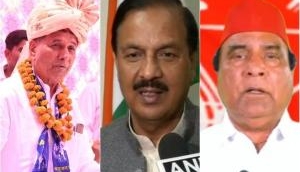
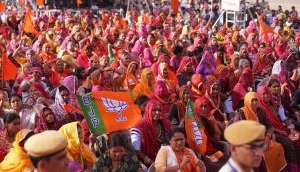

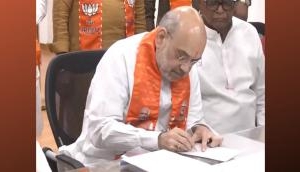

![BJP's Kapil Mishra recreates Shankar Mahadevan’s ‘Breathless’ song to highlight Delhi pollution [WATCH] BJP's Kapil Mishra recreates Shankar Mahadevan’s ‘Breathless’ song to highlight Delhi pollution [WATCH]](http://images.catchnews.com/upload/2022/11/03/kapil-mishra_240884_300x172.png)

![Anupam Kher shares pictures of his toned body on 67th birthday [MUST SEE] Anupam Kher shares pictures of his toned body on 67th birthday [MUST SEE]](http://images.catchnews.com/upload/2022/03/07/Anupam_kher_231145_300x172.jpg)


_251372_1280x720.jpg)
_251371_1280x720.jpg)

